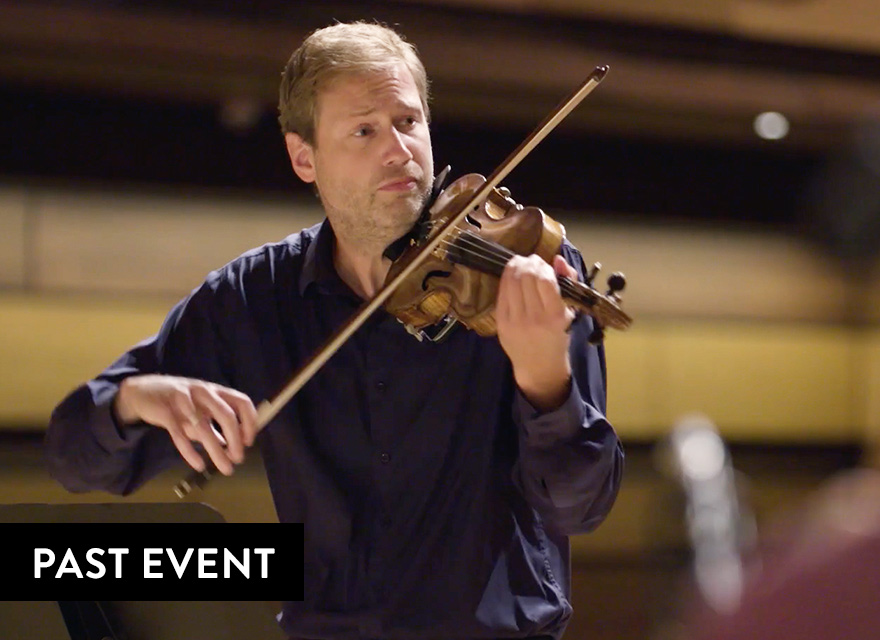
BEETHOVEN SEPTET
FREE ONLINE CONCERT – NO LONGER AVAILABLE
![]()
![]()
![]()
![]()
![]()
![]()
![]()
Cameron Crozman, cello; Philip Chiu, piano
Eric Abramovitz, clarinet; Neil Deland, horn; Darren Hicks, bassoon; Jonathan Crow, violin; Barry Shiffman, viola; Brian Manker, cello; Jeffrey Beecher, bass
We had planned to open our 2020-2021 season last fall with a celebration of Beethoven's 250th birthday. Our Musician-in-Residence, violinist, and Toronto Symphony Orchestra concertmaster Jonathan Crow, was going to bring to Halifax six of his colleagues from the TSO to join in the celebration. The highlight of their program was to be Beethoven's wonderful Septet in E flat major, Opus 20. Premiered in 1800, and dedicated to Empress Maria Theresa, the Septet is a six-movement serenade full of youthful charm, elegance, and grace. Alas, COVID-19 got in the way of this celebration, as it has so many others. However, we are delighted to now present an online performance of this work by Jonathan Crow and his colleagues – free of charge for the next two weeks. The performance was recorded this past August as part of the Toronto Summer Music Festival. It is beautifully opened by our past Musician-In-Residence, pianist, Philip Chiu, and the cellist Cameron Crozman performing Beethoven's 7 Variations on Bei Männern, welche Liebe fühlen from Mozart’s Die Zauberflöte, WoO 46. We hope you enjoy!
PROGRAM
CLICK to open the Program Information in a separate window
Ludwig van Beethoven (1770-1827)
Beethoven composed his “7 Variations on a Theme from Mozart’s Die Zauberflöte” in 1801. The opera had been premiered ten years earlier and was arguably the most popular opera of its day. The main theme comes from the duet “Bei Männern, welche Liebe fühlen” (“In men who know the feeling of love”), which is sung by Pamina and Papageno in Act I as praise to the love between husband and wife. Beethoven scored his variations for cello and piano, and it is clearly a duet between the two instruments, with the shift of melodic material between them creating contrasts and a subtle give-and-take. The structure of the cycle is straightforward and conventional. The theme is announced first by the piano for four measures, mimicking the Pamino’s opening lyrics in the original duet, with a counter-melody for the cello soloist; in the next four, the roles are reversed. The melody then returns to the piano, in a slightly embellished manner, for the remainder of its course. The variations that follow vary greatly in tempo and mood, from energetic and joyful to sorrowful, even strident and determined. All, however, hold to the theme’s basic structure. While Beethoven often used the variation form to provide opportunities for musicians to display technical brilliance, this set also provides a highly lyrical expression of the genre.
I. Adagio – Allegro con brio
II. Adagio cantabile
III. Tempo di menuetto
IV. Tema con variazioni: Andante
V. Scherzo: Allegro molto e vivace
VI. Andante con moto alla marcia – Presto
When Beethoven arrived in Vienna from Bonn in the early 1790s, he initially gained fame as a pianist. He studied composition with Haydn and by the latter half of the decade, he was being considered the musical heir of Mozart who had died some years earlier; and in fact, Beethoven's earlier compositions were clearly influenced by Mozart. For example, the overall structure of Beethoven's Septet in E flat, composed in 1799, is more or less the same as that of a Mozart string trio (K. 563). It is in the same key; but Beethoven expands the form by the addition of substantial introductions to the first and last movements and by changing the second minuet to a scherzo. Another innovation was the scoring of the Septet for a single clarinet, horn, and bassoon (rather than for pairs of these wind instruments). The unusually prominent role of the clarinet, almost as prominent as the violin, was another innovation.
Prefaced by a dignified Adagio, the opening Allegro, starring the violin with a strong secondary role from the clarinet, sparkles with wit, grace, and youthful charm reminiscent of Mozart. Its colorful dialogues, thematic richness, and sonata-inspired form quickly establish this as music that demands the listener's full attention. The pastoral calm of the ensuing Adagio affords us a glimpse of Beethoven at his most relaxed, as the clarinet and violin exchange long-lined phrases of quiet melodic beauty.
The Viennese-flavored Menuetto then dances along with an elegant spring to its step. The fourth movement, initiated by violin and viola, develops variations on a Rhenish folk tune. While the violin is again the star, Beethoven offers a wide range of ever-changing instrumental textures and color combinations – string trio, bassoon-clarinet duet, and horn abetted by violin triplets and double bass pizzicatos, among others.
The horn leads off the brief but playful Scherzo with a motif that returns throughout the movement. The cello also shines here, supported by bassoon and strings. The last movement begins solemnly; however, this sullen mood quickly breaks into the high-spirited sonata-rondo finale theme to restore the carefree tone. The violin leads the collaborative voices as Beethoven exploits the deep rich hues of the other instruments while allowing the violin to indulge in a few frilly turns as this classy divertimento comes to a happy conclusion.
ABOUT THE ARTISTS
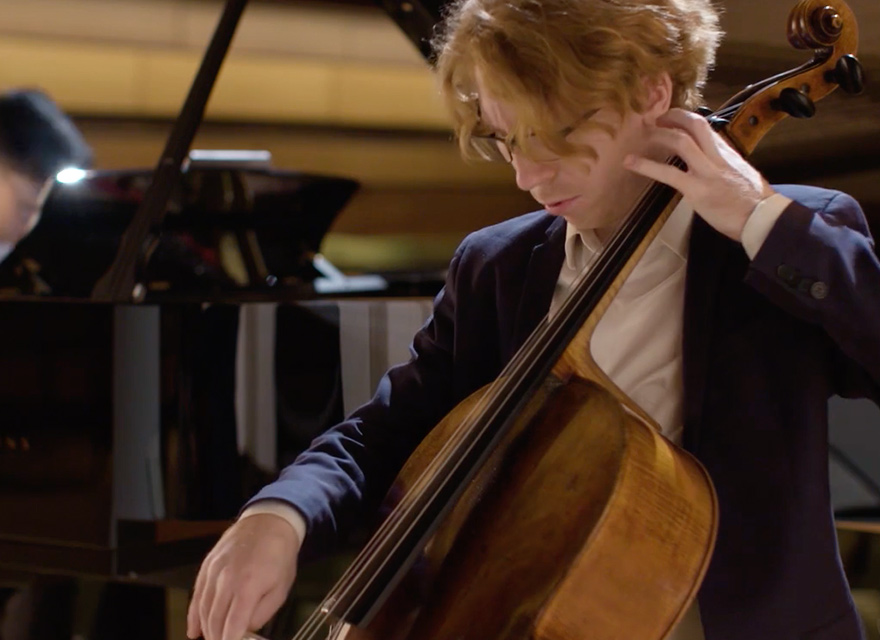
Cameron Crozman, cello
Named Quebec’s CBC-ICI Musique's 2019 Révélation artist, Cameron Crozman is describedas a “mature artist with a profound musicalimagination.” (Toronto Concert Reviews) This 24-year-old cellist has already performed with Quebec Symphony Orchestra, Winnipeg Symphony, Hamilton Philharmonic, Orchestredes Lauréats du Conservatoire, among others and has collaborated world's leading artists including James Ehnes, James Campbell, and André Laplante. One of 6 cellists from around the world chosen to be a member of Gautier Capuçon's 2016-17 Classe d'Excellence at the Louis Vuitton Foundation, he received his 2e Cycle Supérieur Conférant le Grade de Master in cello with highest honours from the Conservatoire de Paris. He concurrently completed his master's level in chamber Music and holds an Artist Diploma in contemporary repertoire. His performances have been broadcast on CBC, Radio France, RadioClassique, and Medici.tv, and his debut album with pianist Philip Chiu was released by ATMAClassique in January 2019. Cameron's second recording was the solo suites of Britten. He plays the Spanish cello “El Tiburon”, attributed toGuillami of Barcelona ca. 1769, on loan from the Canada Council for the Arts Instrument Bank. There is no wonder that Cameron is being hailed by CBC Radio as “Canada's next big cello star.”
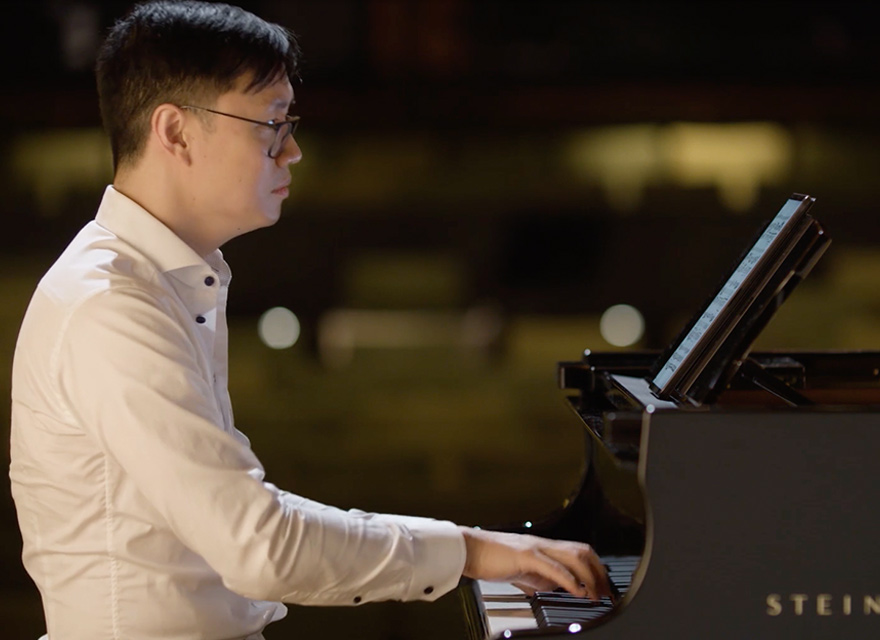
Philip Chiu, piano
Pianist Philip Chiu is lauded for the brilliance, colour, and sensitivity of his playing, and his ability to connect with audiences. More than a summation of technical and musical abilities, Philip is much admired for his infectious love of music and his passion for communication and collaboration, making him one of Canada’s most sought after musicians. He has appeared with James Ehnes, Raphael Wallfisch, Patrice Fontanarosa, Regis Pasquier, Matt Haimovitz, Radovan Vlatkovic, Stefan Dohr, Philippe Bernold, Alex Klein, and Eugene Isotov, and regularly performs with Toronto Symphony Orchestra concertmaster Jonathan Crow, l’Orchestre Symphonique de Montréal concertmaster Andrew Wan, and Pascale Giguere of Les Violons du Roy. Philip is also the creator and director of the new Collaborative Piano Program at the Domaine Forget International Festival and Academy, and he tours extensively in one of Canada’s most exciting piano duos, the Fung-Chiu Duo. Based at McGill University, Philip has been an invited professor-accompanist for the Conservatoire de musique de Montreal, and regularly accompanies at l’Universite de Montreal. Pianist Philip Chiu was the Cecilia Concerts Musician-In-Residence for our 2018/19 Season.
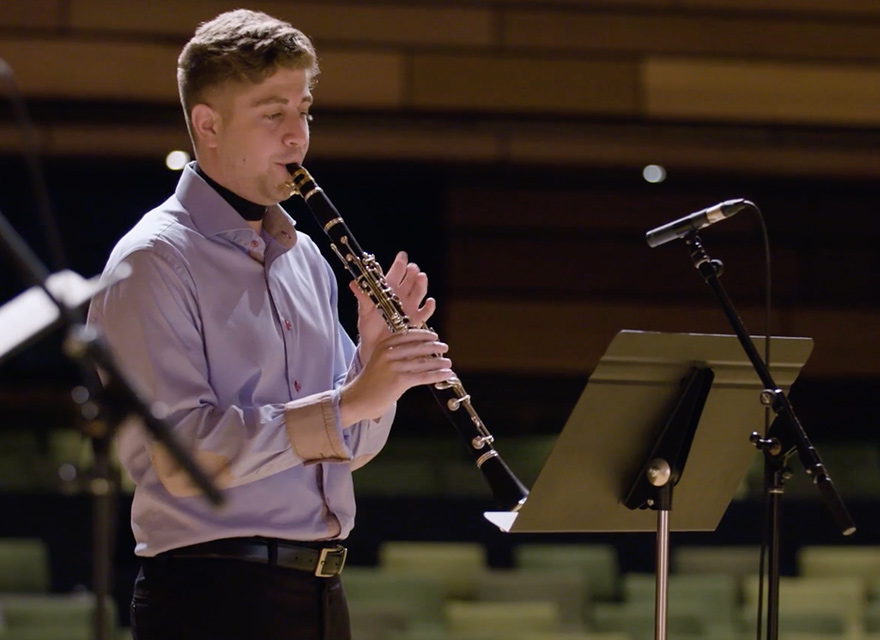
Eric Abramovitz, clarinet
Eric Abramovitz joined the Toronto Symphony Orchestra in 2018 as Associate Principal and E-flat Clarinet, and was previously a member of the Nashville Symphony Orchestra. Eric was named the Vandoren Emerging Artist of the year in 2017, and a CBC Next! artist in 2013. A first-prize winner at the OSM Standard Life Competition in 2011, Eric has been featured as a soloist with numerous orchestras including the McGill and USC Symphonies, l’Orchestre symphonique de Québec, and the National Arts Centre Orchestra. Eric was a Sylva Gelber Career Grant recipient in 2016, and toured throughout Japan with the New York Symphonic Ensemble.
A Montreal native, Eric obtained his Bachelor’s Degree at McGill University’s Schulich School of Music, and pursued graduate studies at the University of Southern California. Eric’s teachers include Zaven Zakarian, Alain Desgagné, Robert Crowley, Simon Aldrich, Jean-François Normand, Kimball Sykes, and Yehuda Gilad.
In his free time, Eric enjoys eating, spending time with his family and cats, shooting pool, playing hockey, and cheering for the Montreal Canadiens.
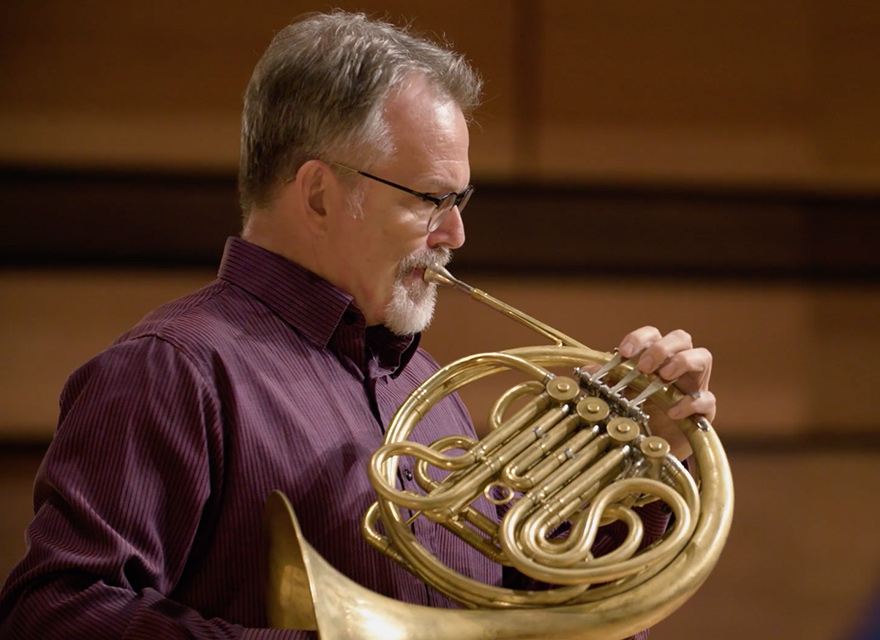
Neil Deland, horn
Neil Deland joined the Toronto Symphony Orchestra as Principal Horn in 2006. Prior to coming to Toronto, Mr. Deland had an extensive freelance presence in Boston, performing and touring often with the Boston Symphony Orchestra and Boston Pops, and was a member of the Boston Modern Orchestra Project and the Boston Philharmonic. He was also a member of the orchestras of Vermont, Rhode Island, Portland, Springfield, and Emmanuel Church.
Mr. Deland has performed the concertos of Mozart and Richard Strauss with the TSO, and appears frequently with the Amici Chamber Ensemble and Parkdale Pops. Since 2011, Mr. Deland has been honoured to be invited by Seiji Ozawa to perform with the Saito Kinen Festival and Mito Chamber Orchestra. Other engagements have included being guest principal horn with the Boston Symphony Orchestra and the Chicago Symphony Orchestra.
An avid swimmer, Neil also once played in left field for the Boston Red Sox during a game in 2005.
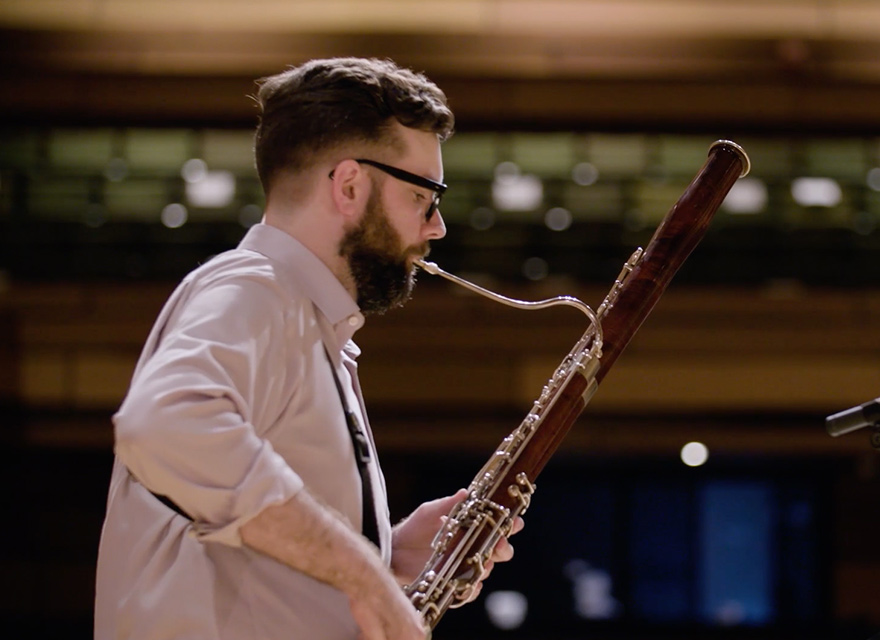
Darren Hicks, bassoon
Darren Hicks joined the Toronto Symphony Orchestra at the beginning of the 2018/19 season as Associate Principal Bassoon. Prior to his appointment to the Toronto Symphony, Mr. Hicks was a Fellow at the New World Symphony in Miami Beach, Florida, for three seasons. At the New World Symphony, Mr. Hicks was able to marry his zeal for performance and sharing his passion for classical music through lecture-recitals and one-on-one audience member conversations. He was a member of the Verbier Festival Orchestra (Verbier, Switzerland) from 2013 to 2015, where he worked with world-renowned conductors such as Valery Gergiev, Gianandrea Noseda, Esa-Pekka Salonen, and Daniel Harding. He has also been privileged to perform with the National Arts Centre Orchestra (Ottawa), working with conductors Trevor Pinnock, Pinchas Zukerman, and Alexander Shelley.
In 2016, Mr. Hicks was named to the CBC’s “Hot 30 under 30” list of classical musicians. In 2014/15 Mr. Hicks was a participant in the Rebanks Family Fellowship and International Performance Residency Program at The Glenn Gould School (Toronto), a fellowship program made possible by the Rebanks Family and The W. Garfield Weston Foundation. Other recent accolades include the Dean’s Prize at Yale University’s 2014 Commencement, the Thomas Daniel Nyfenger Prize (awarded to the student displaying the highest level of excellence in woodwind playing) from the Yale School of Music, and the 2012 National Arts Centre Orchestra Bursary Prize.
Having begun his bassoon studies at the age of 12 in his hometown of Middleton, Nova Scotia, Mr. Hicks pursued his passion for music at Yale University and the University of Ottawa, where he studied with principal teachers Frank Morelli and Christopher Millard (bassoon), Joan Panetti (musicianship), and David Shifrin (chamber music).
Darren plays on a bassoon made in Canada by Bell Bassoons Ltd.

Jonathan Crow, violin
Violinist Jonathan Crow is the 2020/21 Cecilia Concerts Musician-In-Residence. Jonathan has been Concertmaster of the Toronto Symphony Orchestra since 2011. A native of Prince George, British Columbia, Jonathan earned his Bachelor of Music in Honours Performance from McGill University in 1998, at which time he joined the Orchestre symphonique de Montréal (OSM) as Associate Principal Second Violin. Between 2002 and 2006, Jonathan was the Concertmaster of the OSM; during this time, he was the youngest concertmaster of any major North American orchestra. Jonathan continues to perform as guest concertmaster with orchestras around the world. He has also performed as a soloist with most major Canadian orchestras, under the baton of such conductors as Charles Dutoit, Sir Yehudi Menuhin, Sir Andrew Davis, Peter Oundjian, Kent Nagano, Mario Bernardi, and João Carlos Martins.
Jonathan joined the Schulich School of Music at McGill University as an Assistant Professor of Violin and was appointed Associate Professor of Violin in 2010. Current and former students of Mr. Crow have received prizes at competitions around the world, and work regularly with major orchestras in North America and Europe. Jonathan is currently Associate Professor of Violin at the University of Toronto.
In 2016, Jonathan was named Artistic Director of Toronto Summer Music, which recently announced record attendance in his first full season. An avid chamber musician, he has performed at chamber music festivals throughout North America, South America, and Europe. He is a founding member of the JUNO Award–winning New Orford String Quartet, a project-based ensemble dedicated to the promotion of standard and Canadian string quartet repertoire throughout North America. As an advocate of contemporary music, he has premièred works by Canadian composers Michael Conway Baker, Eldon Rathburn, Barrie Cabena, Gary Kulesha, Tim Brady, Francois Dompierre, Ana Sokolovic, Marjan Mozetich, Christos Hatzis, Ernest MacMillan, and Healey Willan. He also includes in his repertoire major concerti by such modern composers as Ligeti, Schnittke, Bernstein, Brian Cherney, Rodney Sharman, Vivian Fung, and Cameron Wilson.
Jonathan has recorded for ATMA, Bridge, CBC, Oxingale, Skylark, and XXI-21 labels and is heard frequently on Chaîne Culturelle of Radio-Canada, CBC Radio Two, and National Public Radio, along with Radio France, Deutsche Welle, Hessischer Rundfunk, and the RAI in Europe.
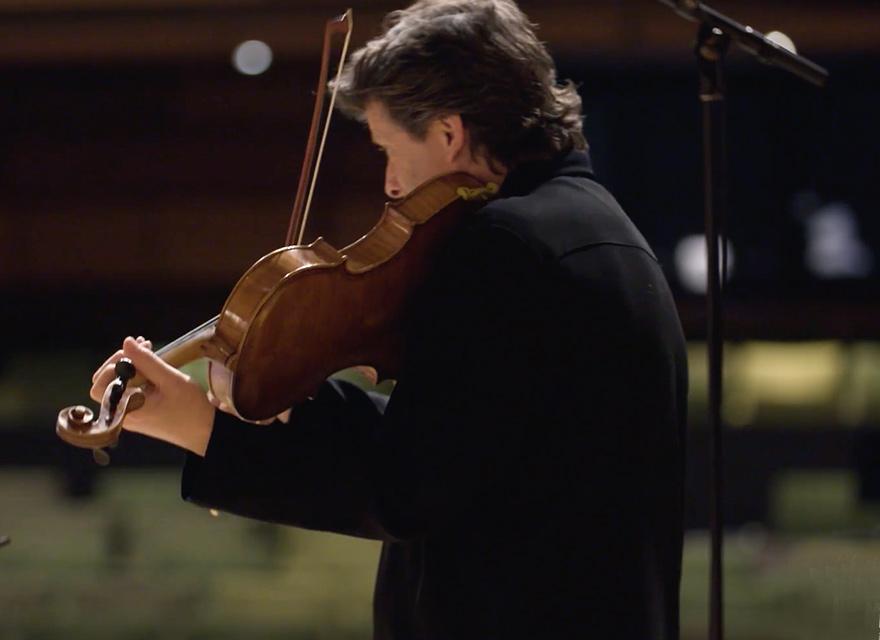
Barry Shiffman, viola
Internationally acclaimed violinist and violist Barry Shiffman is well-respected as a musician, educator and administrator. He was co-founder of the St. Lawrence String Quartet (SLSQ), and since 2010 has been both the Associate Dean and Director of Chamber Music at the Glenn Gould School and Director of the Phil and Eli Taylor Performance Academy for Young Artists at The Royal Conservatory of Music. During his 17 years with the SLSQ he appeared in over 2,000 concerts in venues around the globe, and recorded several critically acclaimed discs under an exclusive contract with EMI Classics. While in SLSQ, Shiffman served as artist-in-residence at Stanford University from 1998 to 2006 and as visiting artist at the University of Toronto from 1995 to 2006.
He has also served in numerous roles at the Banff Centre, including Director of Music Programs (2006-2010), Artistic Director of the Centre’s Summer Classical Music Programs (2010-2016), and since 2006 Executive Director of the Banff International String Quartet Competition. During his tenure at The Banff Centre he introduced new programming in classical music performance, composition, popular music and jazz and oversaw the dramatic growth of The Banff International String Quartet Competition (BISQC). From 2009-2017, he was Executive Artistic Director of Music in the Morning Concert Society in Vancouver, concluding his role for the organization this past July directing a new summer chamber music festival that attracted capacity audiences for all events.
A sought after juror, he has served on the violin jury of the Tchaikovsky and Montreal Violin Competitions, and the String Quartet Competitions of London Wigmore Hall, Lyon and Geneva, as well as many national competitions in Canada.
This fall he begins a new appointment as Artistic Director of Rockport Music in Massachusetts, overseeing all classical programming for the organization including a five-week summer chamber music festival.
He received his formal studies at The Royal Conservatory in Toronto, University of Toronto, Utrecht Conservatory, Hartt School of Music, Juilliard School and Yale University. Summer studies included The Banff Centre, Tanglewood and Aspen.
Barry Shiffman is the recipient of the Longy School’s Nadia Boulanger Prize for Excellence in the Art of Teaching, and an Honorary Doctorate from The University of Calgary.
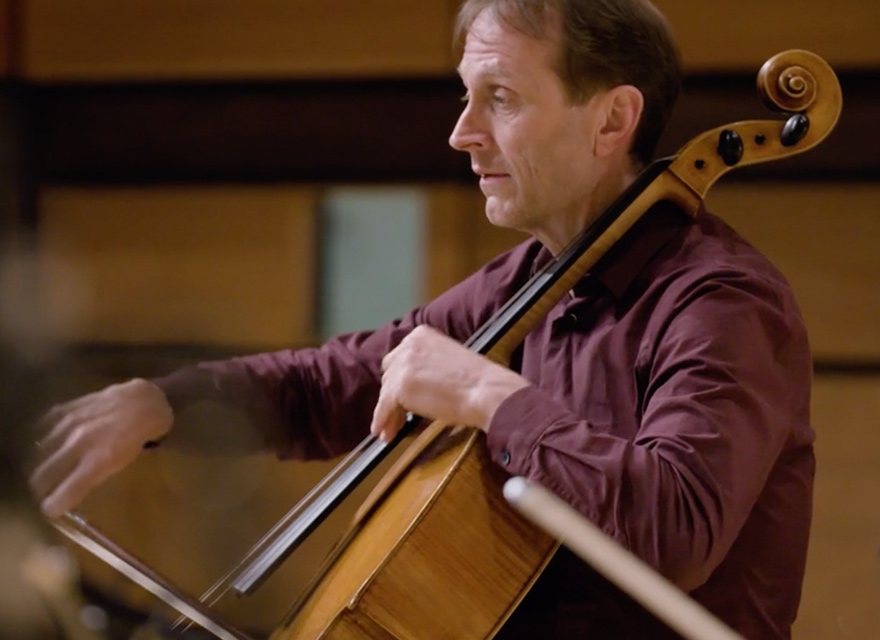
Brian Manker, cello
Principal Cello of the Orchestre symphonique de Montréal since 1999, Brian Manker enjoys a diverse and varied musical career as a performer and a teacher. In addition to being a frequent concerto soloist with the OSM, Mr. Manker is also a member of the Juno and Opus award winning New Orford String Quartet.
Currently a faculty member of McGill University’s Schulich School of Music, Mr. Manker launched the Beethoven Project and founded the Adorno Quartet in 2007, the purpose of which is to perform all of Beethoven’s quartets in their proper context: the private salon. In 2010, he recorded the complete Bach Cello Suites.
Brian Manker plays on a cello made by Pietro Guarneri of Venice ca. 1728–1730 and a bow made by Joseph René Lafleur ca. 1850, graciously loaned by the Canimex Foundation.
Barry Shiffman is the recipient of the Longy School’s Nadia Boulanger Prize for Excellence in the Art of Teaching, and an Honorary Doctorate from The University of Calgary.
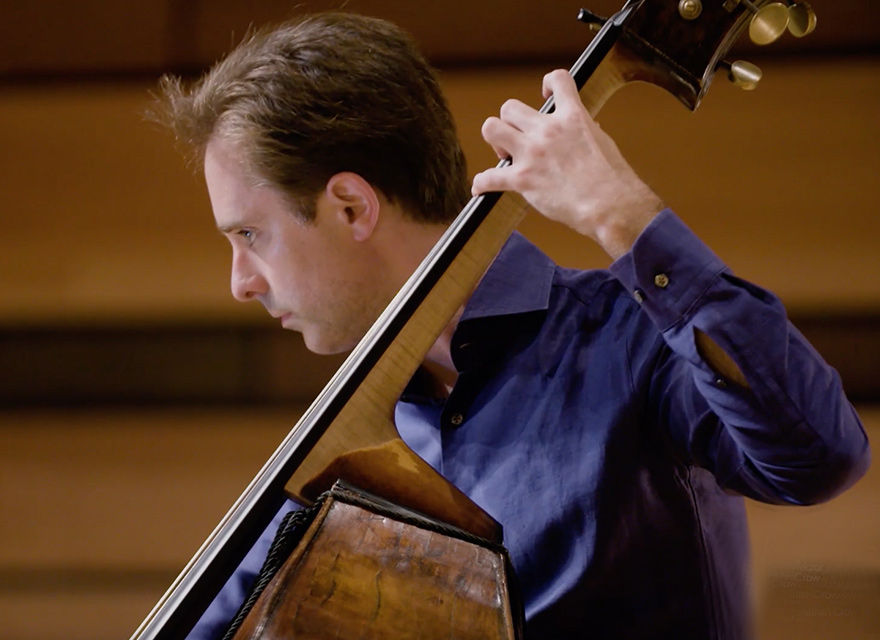
Jeffrey Beecher, bass
Jeffrey Beecher pursues a varied musical career as both an energetic performer and educator. He performs as Principal Double Bass with the Toronto Symphony Orchestra, which he joined in 2006, and serves as Co-Artistic Director of Silkroad and on the faculty of The Glenn Gould School at The Royal Conservatory.
Jeffrey tours frequently with Silkroad, performing in major venues of North America, Europe, the Middle East, and Asia. In addition to performing, Mr. Beecher has participated in residencies around the world, including work at Harvard University, University of California Santa Barbara, Getty Museum, Rietberg Museum, and the Aga Khan Museum. He appears on several recordings, including Off the Map, A Playlist Without Borders, the GRAMMY® Award–winning Sing Me Home, as well as in the documentary film The Music of Strangers.
As an orchestral musician, Jeffrey has performed as Principal Bass with the Royal Concertgebouw Orchestra, Philadelphia Orchestra, Minnesota Orchestra, Detroit Symphony Orchestra, and Orchestra of St. Luke's. An active chamber musician, Mr. Beecher has enjoyed performing at the Chamber Music Society of Lincoln Center, Bargemusic, Weill Recital Hall, Zankel Hall, and the 92nd Street Y. He has also performed at festivals from the Bridgehampton Chamber Music Festival to the Marlboro Music Festival.
Jeffrey has made numerous arrangements for the Toronto Symphony Orchestra and Silkroad ensemble. He also composed and produced music for the internationally broadcast television show, Travels to the Edge with Art Wolfe.
Jeffrey began his musical education in New York where he attended The Juilliard School and the Manhattan School of Music. He completed his studies at the Curtis Institute of Music with Harold Robinson and Edgar Meyer.
Jeffrey plays on two double basses: an Italian bass made by Giovanni Battista Rogeri in Brescia, Italy in 1690; and a French bass made by Jean-Baptiste Vuillaume in Paris, France in 1850.
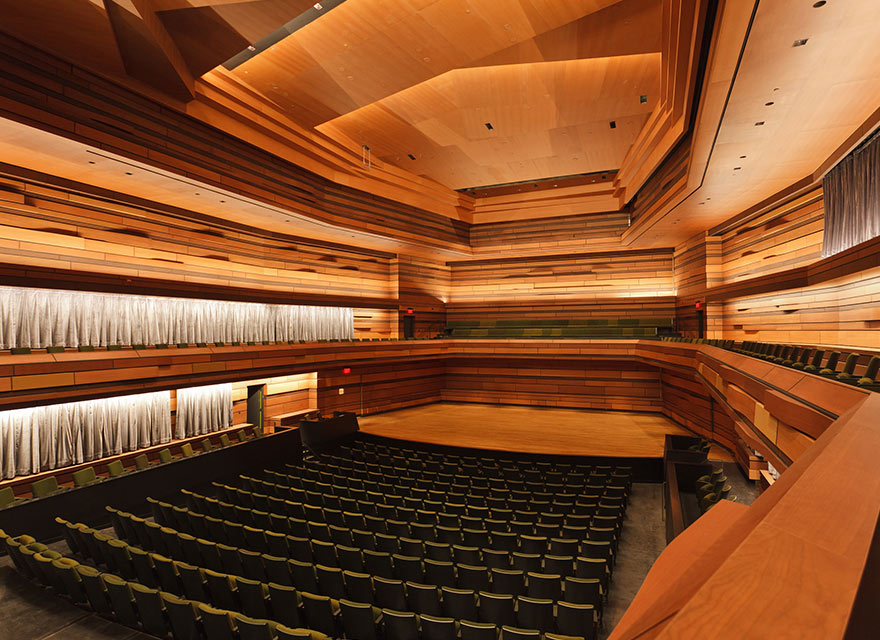
ABOUT THE VENUE
The Isabel Bader Centre for the Performing Arts
Located on the shores of Lake Ontario, as part of Queen's University, The Isabel Bader Centre for the Performing Arts in Kingston is stunning both inside and out. This state-of-the-art performance venue provides an exceptional setting featuring gorgeous views of the lake and beautifully designed spaces crafted with heritage wood, steel, and glass. The state-of-the-art Performance Hall, with two-foot thick concrete walls that completely muffle outside sound, has a 566-seat capacity. Curved walls cut echo and give the hall its lively acoustic effects. New York-based Arup designed the acoustics using their Virtual SoundLab technology, which allows the environment of a space to be listened to before it is even built. Retractable motorized acoustic drapes allow the performance hall sound to be customized even further. The venue was funded by several major contributions, but mainly through a large gift from the family of Kingston's Dr. Alfred Bader.
We gratefully acknowledge the support of Arts Nova Scotia and the Nova Scotia Department of Communities, Culture, and Heritage.

